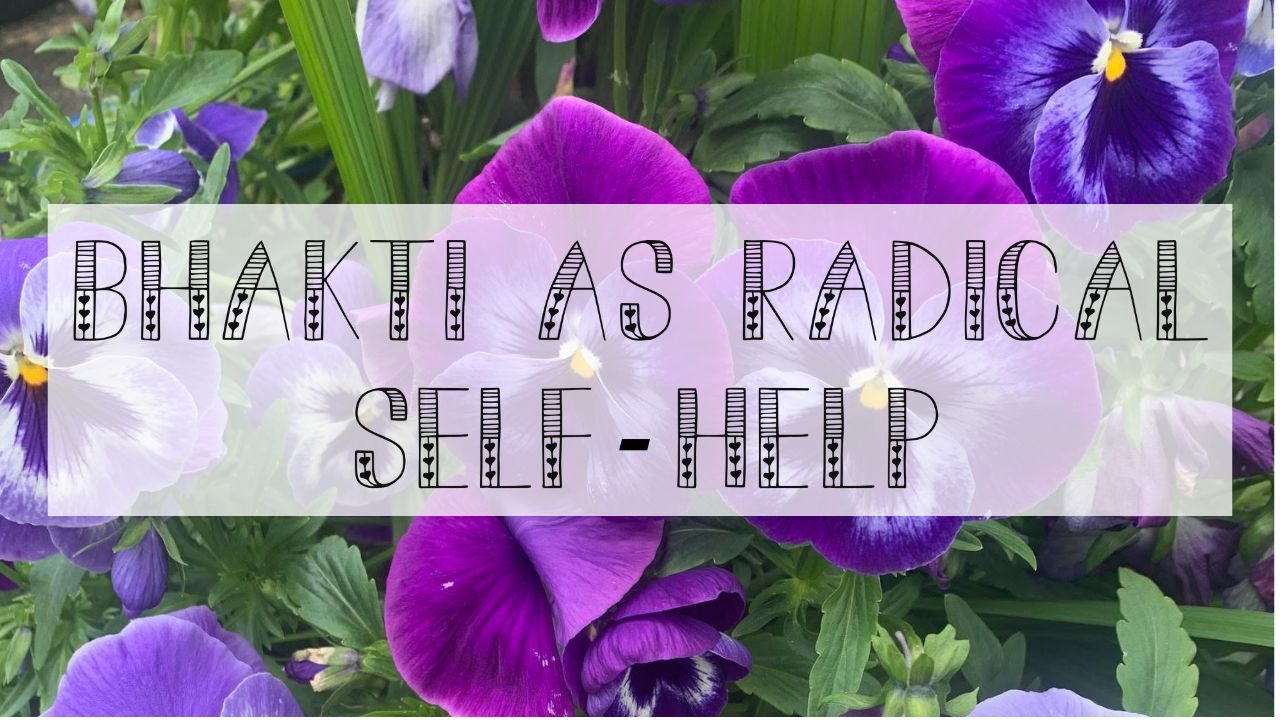Bhakti as Radical Self-Help
Jul 08, 2025
Recently in my online membership, Bhakti Club, we were blessed to welcome a special guest, my dear friend Abhidheya. Abhidheya is an initiated Hare Krishna devotee (a member of ISKCON: the International Society for Krishna Consciousness). She lives a life deeply anchored in Bhakti Yoga practice while navigating the everyday realities of the modern world as a mum, teacher, and women’s rep for her local temple.
In her talk she spoke openly about what it means to follow the regulative principles of Bhakti Yoga, not as some unreachable ideal, but as something she engages with daily in a practical, thoughtful way. What really stayed with me afterwards, was her generous, inclusive vision of Bhakti.
Abhidheya shared something personal about her ancestral lineage which is of Indian-Jewish culture:
“My genetic ancestors in India, like many Jewish people in India, sang bhajans—devotional chants usually associated with Hinduism—in a kind of hybrid language of Hebrew and Sanskrit. These were devotional songs about God, Bhakti bhajans. I think it’s very real that Bhakti can be applied to any religion. I truly believe that. Because it’s a mood. In fact, it’s almost like a verb. Bhakti is something you do.
The question becomes: how do you invite that Bhakti into your life, wherever you are, in a practical way - not in a way that takes hours and hours out of your day?
The first time I heard the regulative principles of ISKCON, I felt very confronted. It was difficult. It took time. It was a process, and it still is. It’s a decision you make every day. I could go to the pub and have a beer right now if I wanted, you know? But I choose not to. Bhakti is a choice everyday. And that’s very empowering.
It’s empowering because it helps you take charge of your own life, how you want things to be, what kind of person you want to be. That’s why some people describe Bhakti Yoga as radical self-help. It’s practical self-help, actually, because it’s the ultimate self-help. It teaches you how to be truly responsible for yourself and your actions.”
At the bottom of this post you can watch a YouTube video of Abhidheya’s actual ancestors singing these Bhakti bhajans as Jewish Indians. I was so blown away when she sent me this link on Whats App as we were chatting back and forth. A blending of devotion across cultures, languages and traditions.
Her words, and that music, reminded me of something the Dalai Lama has said again and again: that we should strive to be better practitioners of our own faith, and that spiritual practice should inspire unity, not division.
There are two key takeaways from Abhidheya’s talk that I’ve been sitting with, and that I’d like to share here:
1) Bhakti can be followed by all faiths
Bhakti isn’t confined to one religion, one language, or one tradition. As Abhidheya said, it’s a mood—a verb, an action, a way of showing up. Whether you chant in Sanskrit, Hebrew, English or any other language, what matters is the feeling, the devotion, the intention behind it. Bhakti is devotion to a Higher Power and that’s universal.
2) Bhakti is a path of radical self-help and self-responsibility
This is not the self-help of quick fixes or feel-good slogans. Bhakti calls us to choose, every single day, the kind of person we want to be. It invites us to take ownership of our actions, our thoughts, our choices. And in that, it offers something truly empowering: a way to take charge of our own hearts and our own lives.
In a world that constantly encourages us to look outward for answers - to books, podcasts, social media, even courses - Bhakti gently guides us inward. It asks us to take responsibility, to show up with love and integrity, even when it’s hard. Especially when it’s hard. It’s a path of softness and kindness, not guilt and shame. Slowly, slowly we get closer to God and live more deeply in alignment with our truest values.
🌹🌹🌹🌹🌹
Looking to dive deeper into Ayurveda and Yoga with KATIE ROSE? Here's a helpful list of my most popular resources...
